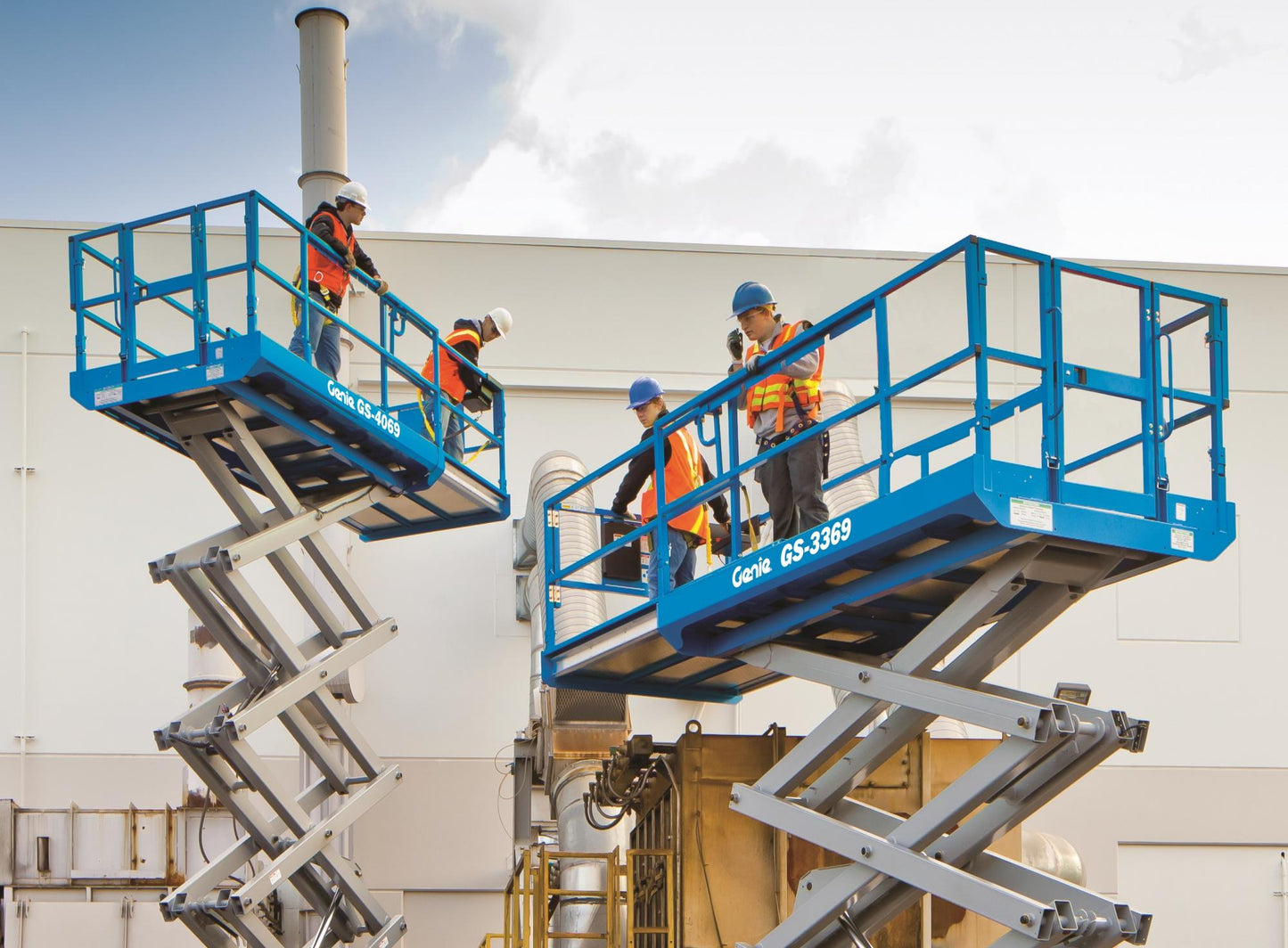Lift course (personnel lift)
Couldn't load pickup availability
The course can also be delivered as a classroom course from GTM Kompetanse.
Online lift course – Documented safety training (Class A, B and C)
Our online lift course provides you with legally documented safety training in accordance with the Regulations on the Performance of Work Section 10-2. The course covers all lift classes (A, B and C) and can be completed flexibly on a PC, mobile phone or tablet – whenever it suits you.
Course content
Our lift course provides a thorough theoretical introduction to the safe use of personal lifts and covers, among other things:
- Applicable laws and regulations
- The lift's structure and technical characteristics
- Operation and use in different situations
- Class division (A, B and C)
- Maintenance and control routines
- Prevention of accidents and incidents
- Use of lifts in accordance with regulations
Practical training is carried out in your own company, with the associated documentation form included in the course.
Purpose of the course
The lift course provides employees and employers with the necessary knowledge for the safe and secure use of lifts. Proper training reduces the risk of accidents and contributes to a safer working environment.
How the lift course is conducted
Our lift course is modular and contains text, images and animations for an engaging learning experience. After completing the course, a final theory test is taken. The lift course normally lasts 2–3 hours.
Upon passing the theory test and documenting completed practical training, you will receive a course certificate as proof of completed training. The employer is responsible for the practical training.
Benefits of our online lift course
- Fully online – available 24/7
- Complete the course at your own pace on the device of your choice
- Always updated according to current regulations
- Covers all lift classes (A, B and C)
- Course certificate upon passing the theory test and approved practical training
- Includes documentation form for practical training
Who is the lift course suitable for?
The lift course is suitable for anyone who will be using personal lifts in work-related tasks, for example in:
- Construction industry
- Industry and manufacturing
- Cleaning and facade work
- Warehouse and logistics
- Operation and installation
Typical job roles include construction workers, fitters, cleaners, warehouse workers, operations technicians and installers.
Training and practice requirements
According to the regulations on the performance of work § 10-2, the employer is responsible for ensuring documented training when using a lift. The theory part is taken in our online lift course, while the employer provides practical training and documentation. The practical training must be given by a person with at least equivalent competence.
Recommended additional course
For work at height with a risk of falling over 2 meters, we recommend our fall protection course as an important supplement.
Our online lift course provides you with flexible, effective and regulatory-compliant training. Start when it suits you, and ensure you have documented competence in the safe use of lifts.
By purchasing this online course, you agree to our terms and conditions .
View Product Details
Frequently asked questions
When will I have access to the online course?
You will have access to the online course within 30 minutes of receiving your order. Your username and password will be sent to your email address.
How do I book online courses?
To order online courses, you can follow our step-by-step ordering guide . The guide shows you how to easily add courses to your shopping cart, fill in the necessary participant information, and access the course quickly and easily.
How do I pay?
We offer payment by invoice and VISA/Credit card.
The standard due date for invoices is 10 days.
If you choose an invoice, it will be sent to the email address provided when ordering or sent as EHF if available.
Practical training
This online course requires the participant to complete practical training in use and safety.
The practical training must be given by a competent person with the necessary qualifications. The person must have at least the same competence as the training applies to. For example, someone who provides training in the use of lifts class A and B must themselves have documented proficiency for classes A and B. The person providing the training must sign the practice document as confirmation that the training has been completed.
All necessary documents to complete will be provided during the course.
